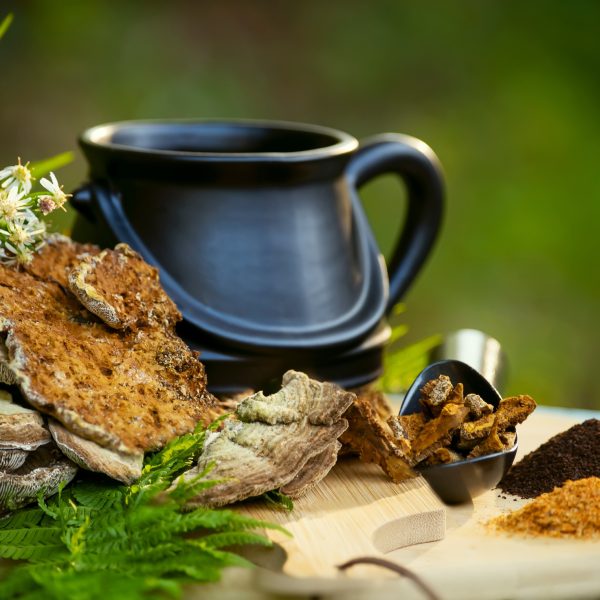
Adaptogens help the body to adapt, adjust and recalibrate itself depending on our emotional and physical surroundings.
None of us are immune to the pressures of modern life, whether it be work deadlines, the daily commute or just simply never having enough hours in the day. The Health & Safety Executive estimate that in 2014/15 stress accounted for 35% of all work related ill health cases and 43% of all working days lost due to ill health.
Our bodies are also regularly exposed to physical and toxic stress too – from household chemicals, pesticides in our foods, pollutants in the air, intensively farmed meats and refined sugar to name but a few.
All this can overwhelm the body’s ability to cope, leading to insomnia, tiredness, anxiety, depression and even physical illness.
Thankfully, there are some incredible rejuvenating herbs that can help. These are the amazing adaptogens.
What are adaptogens?

So, what are adaptogens? Well, the clue is their name. They help the body to adapt, adjust and recalibrate itself depending on our emotional and physical surroundings. So, for example, they can foster a sense of calm in times of stress; bring peace to a racing mind in the middle of the night; offer clarity amidst turmoil; and imbue us with energy in the face of exhaustion.
The term adaptogen was introduced into scientific literature by Russian toxicologist Nikolay Lazarev in 1957 to refer to “substances that increase the state of non-specific resistance” in stress. Broadly, an adaptogen must have the four ‘Ns’.
- Nourishing: Bring nutritive strength.
- Normalising: Raise what is low and lower what is high (e.g. energy, stress).
- Non-specific: Act on multiple parts of the body at the same time.
- Non-toxic: Safe when used over extended periods of time.
How do adaptogens work
Adaptogens relieve stress by modulating the release of stress hormones from the adrenal glands. As biological response modifiers, adaptogens restore the body’s innate immune function and help the body adapt to different stressors. This gives them preventative and protective as well as curative activity in compromised immunity. By replenishing our deeper immunity and regulating our response to stress, adaptogens replenish the wellspring of health and vitality and are true rejuvenating tonics helping to:
- Improve overall wellbeing
- Increase energy
- Optimise organ function
- Reduce stress response
- Improve blood sugar levels
- Optimise protein synthesis
- Reduce inflammatory cortisol levels
- Improve cholesterol ratios
- Regulate the hormonal balance
Adaptogenic herbs

I often marvel at the fact that there are plants that can do all, yes, all of these things. And, there are plenty. Here are three of my favourites.
Ashwagandha
The perfect herb for the 21st century as it both calms and energises, helping us to adapt to the stresses of everyday living. It’s helpful for assisting deep sleep and calming nervous tension. Its ability to replenish the blood, enhance nutrients and build bone strength make it indispensable in disorders of degeneration and ageing. Its affinity for the adrenal, endocrine and nervous systems point to its use in any imbalances affecting our energy or vitality.
Holy basil
This leafy member of the mint family is known in Hindu mythology as an incarnation of the Goddess Tulsi, offering divine protection. As well as increasing circulation, aiding digestion and helping to protect against seasonal malaise, holy basil is also good for calming busy minds.
Turmeric
The superspice par excellence. High in flavonoids and with over 6,000 clinical studies attesting to its ability to protect and nourish the body, it improves circulation, reduces inflammation, heals wounds and protects the liver and bowels. It has gained the reputation of one of nature’s most potent remedies for many of today’s health challenges.
Finally, perhaps our greatest rejuvenating friend is letting our hair down and peeling with laughter. There is a great Hindi adage that goes: “There is medicine for 100 problems, but laughter is my best healing friend!”
































